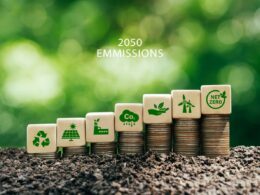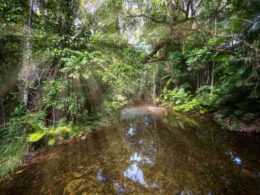The governments of the UK and Australia awarded £480,000 (approx. $607,370) to a consortium that is aiming to reduce renewable methanol expenses through efficient green hydrogen production.
The project is led by HAMR Energy and Supercritical Solutions and aims to showcase the potential of high-efficiency, high-pressure green hydrogen production that can potentially reduce renewable methanol costs by up to 20%.
The project costs £800,000 (approx. $10,12,284) of which £480,000 (approx. $607,370) has been funded by the Australia-UK Renewable Hydrogen Innovation Partnership to de-risk the concept for progression to the pilot stage. In the first phase, the consortium is going to conduct a techno-economic feasibility study focused on integrated high-pressure hydrogen produced by UK-based Supercritical’s electrolyzers into HAMR’s hybrid methanol plant design. The Supercritical’s technology will be deployed in Australia as part of a renewable methanol facility and is slated to commence operations in 2026.
The consortium estimates that the electrolysis technology could potentially reduce the cost of renewable methanol by up to 20% compared to current methods, with reported efficiency reaching 42kWh/kg of hydrogen – 95% higher heating value (HHV). Supercritical’s electrolyzers, delivering hydrogen at 200 bar, are expected to streamline compression and storage infrastructure for methanol facilities.
Methanol, which is the largest hydrogen user, serves as a feedstock for plastics and fuel products but it also emits significant amounts of carbon dioxide. Given the increasing need to decarbonize existing production processes, renewable methanol is being explored as a substitute for heavy fuel oil in shipping.
Matt Bird, CEO and co-founder of Supercritical sees the collaboration with HAMR as a significant step toward realizing zero-emission renewable fuels as a mainstream reality.
Alex Smith, co-founder of HAMR, highlighted the opportunity for Australia to lead in renewable methanol production. He believes that collaboration with Supercritical presents an exciting prospect for reducing the costs associated with renewable fuel production.






















